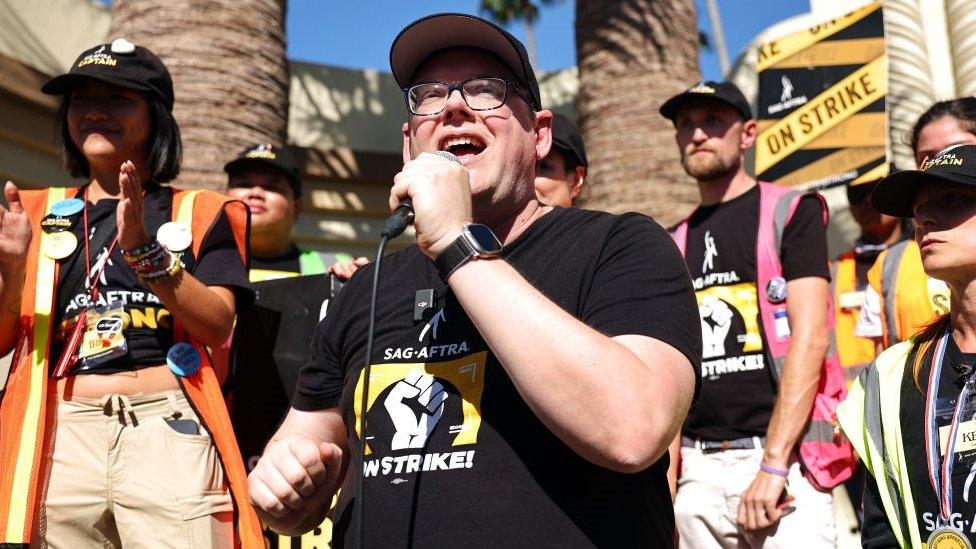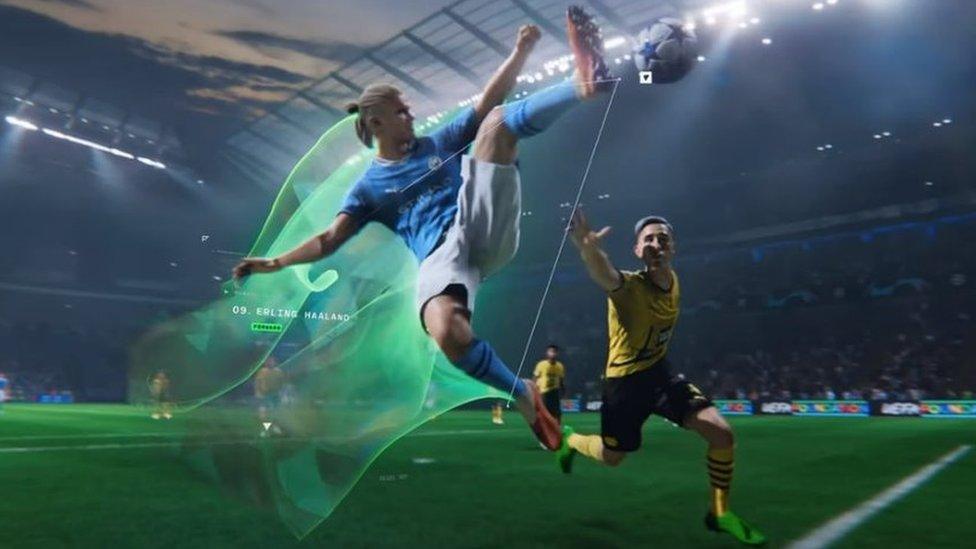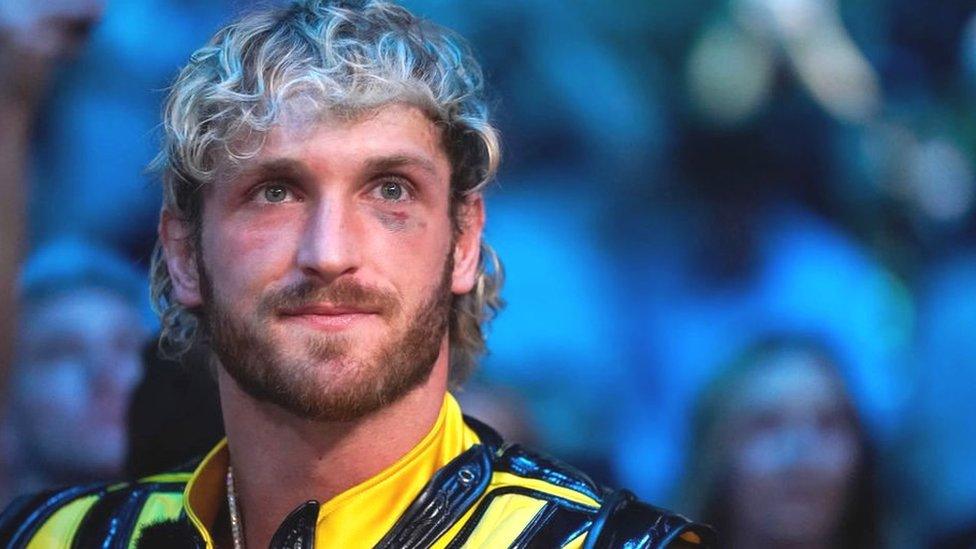Gaming voice actors blindsided by 'garbage' union AI deal
- Published

Sag-Aftra's Duncan Crabtree-Ireland signed the deal two months after he joined the picket line in 2023
Prominent voice actors say they weren't told about a landmark deal setting out how voices generated by artificial intelligence (AI) can be used in games.
It has been struck by US actors' union Sag-Aftra and AI firm Replica Studios.
The union says it guarantees "fully informed consent and fair compensation" for its members.
But many voice artists, who have long been concerned AI will replace them, have reacted with fury with one calling the deal "garbage."
In an email to members, seen by the BBC, Sag-Aftra said the deal was negotiated by a committee which included "actors with significant and diverse experience performing in games".
"The contract was specifically tailored to the needs of voice actors, ensuring informed consent and proper compensation terms that are unique to this set of performers," it said.
It comes after Sag-Aftra led a months-long strike in 2023 to fight for protections from film and television studios using AI.
Many voice actors have suggested this new deal is at odds with the purpose of that industrial action, with Fallout and Mortal Kombat voice actor Sunil Malhotra saying he "sacrificed to strike half of last year to keep my profession alive, not shop around my AI replica".
In a blog covering the announcement, external, Sag-Aftra said the deal was "approved by affected members of the union's voiceover performer community".
"Recent developments in AI technology have underscored the importance of protecting the rights of voice talent, particularly as game studios explore more efficient ways to create their games," said the union's chief negotiator Duncan Crabtree-Ireland.
"With this agreement, we have achieved fully informed consent and fair compensation when it comes to the use of our members' voices and performances."
But Steve Blum, a voice actor once credited by Guinness for being the most prolific in video games, external, said "nobody" he knew of had approved the deal.
Allow X content?
This article contains content provided by X. We ask for your permission before anything is loaded, as they may be using cookies and other technologies. You may want to read X’s cookie policy, external and privacy policy, external before accepting. To view this content choose ‘accept and continue’.
According to Sag-Aftra, the agreement lays out terms and conditions for AI-generated voices in video games, which can be licensed by Replica Studios both in gaming and other forms of media.
It requires the AI firm to get consent from actors before it uses voices based on their likeness, and also gives voice actors the ability to deny their voice being used in perpetuity without their consent.
But it has been met with consternation from the performers themselves, with World of Warcraft voice actor Andrew Russell calling it "garbage", while Shelby Young, who will provide the voice of Yuko in the upcoming Persona 3: Reload, said she was "really disappointed" in the union.
Voice actors outside of gaming have also criticised the agreement, with Joshua Seth, known for voicing Tai in animated series Digimon, calling it a "big mistake, external", while audiobook narrator Paige Reisenfeld said she was "ashamed" that her union payments went towards it.
And Veronica Taylor, who provided the voice for Ash in Pokemon, asked how the deal was made without being put to a vote.
Allow X content?
This article contains content provided by X. We ask for your permission before anything is loaded, as they may be using cookies and other technologies. You may want to read X’s cookie policy, external and privacy policy, external before accepting. To view this content choose ‘accept and continue’.
But Sag-Aftra president Fran Drescher said the deal was "a great example of AI being done right".
Meanwhile, Replica Studios CEO Shreya Nivas said the deal was an "ethical approach" to AI.
"We are excited by the new opportunities this opens up for world-leading AAA studios who can now access the benefits of Replica's AI voice technology while knowing that talent is recognized and compensated fairly for the use of their likeness," he said.
Related topics
- Published9 January 2024

- Published5 January 2024
